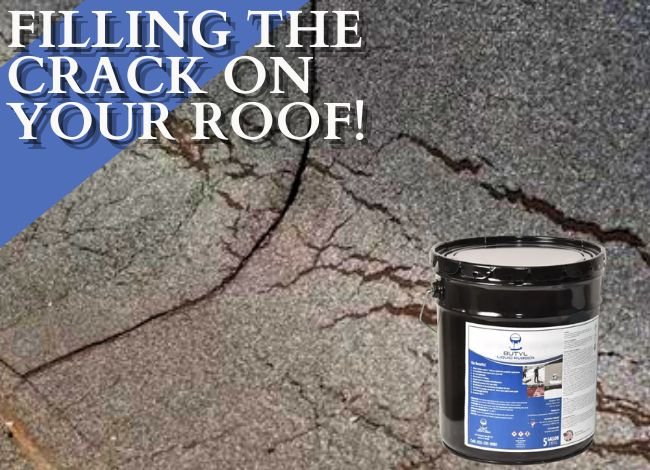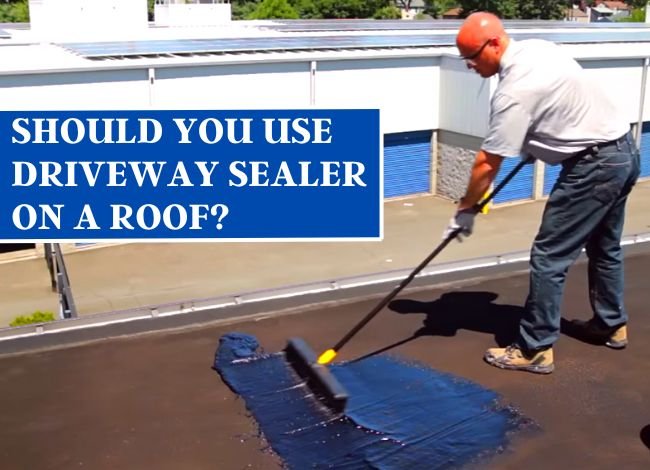Last Updated on April 21, 2025
Many homeowners wonder: Can I use leftover driveway sealer on my roof to fix cracks or waterproof it? While it might seem like a practical idea, the reality is quite different—and potentially harmful.
Looking for long-lasting protection for your driveway instead?
Check out our expert guide on the best driveway sealer options that ensure durability and resistance to harsh weather.
Can You Use Driveway Sealer on a Roof?
The short answer is no. Driveway sealers are specially formulated to protect asphalt or concrete surfaces from UV rays, water, ice, oil, and gasoline. These sealers are rigid and designed to handle horizontal surfaces with high foot or vehicle traffic.
However, roofing materials require completely different properties—including greater flexibility, UV and temperature resistance, and adhesion to surfaces like shingles, metal panels, wood, or membrane roofing. Using driveway sealer on a roof can cause:
- Poor adhesion to roofing materials
- Cracking due to thermal expansion and movement
- Inadequate waterproofing
- Potential water leaks and structural damage
Want to understand the ingredients and purpose of driveway sealers?
Read our BlackJack driveway sealer review to see why it’s perfect for driveways—but not for rooftops.
What Should You Use Instead to Seal Roof Cracks?
If you’re dealing with cracked or leaky roofing, it’s essential to use products designed for that purpose. Here are two of the best roofing sealant options:
- Roofing Mastic
A thick, trowel-grade compound used to patch cracks, seal flashing, and reinforce areas around chimneys, vents, and skylights. It adheres well to roofing materials and remains flexible over time. - Liquid Rubber
A popular waterproofing solution that forms a seamless, flexible membrane. It’s compatible with various roofing surfaces like EPDM, metal, or plywood.
Recommended Option: Butyl Liquid Rubber – highly durable, easy to apply, and UV-resistant, making it ideal for long-term protection.
Additionally, if you’re sealing moisture-prone or vertical surfaces (like foundation walls or under eaves), consider Bone Dry Concrete Sealers. These are designed for advanced moisture control and perform well in hard-to-reach or uneven areas.
Is Liquid Rubber Safe for Roofing Applications?
Yes, liquid rubber is a safe and effective choice for roofing applications. It is commonly used for sealing and waterproofing a variety of roof surfaces. This versatile material adheres well to concrete, stone, metal, PVC, and wood. Once applied, it forms a flexible, waterproof membrane that shields your roof from harsh weather elements while enhancing its overall durability.
When applied correctly, liquid rubber roofing sealant can last up to 10 years or more. However, proper safety precautions are essential during application. Wear protective clothing, gloves, and a mask, as liquid rubber can stain fabric permanently and may emit strong fumes when wet.
What Should You Do with Leftover Driveway Sealer?
Driveway sealer is not a multi-purpose product and should only be used for driveways or other compatible paved surfaces. If you have leftover sealer, here are some responsible options:
- Do not apply it on roofs, wooden decks, or siding, as it’s not designed for those materials and could cause damage.
- Take unused portions to a local Eco-Depot or household hazardous waste facility for safe and eco-friendly disposal.
- Dispose of empty buckets in regular trash. Do not reuse them for storing food, tools, or other household items.
For a deeper understanding of sealer compatibility, read our comparison guide on Silane vs. Siloxane Sealers to learn which sealers work best for specific surfaces.
Final Thoughts
Although it might seem convenient to reuse leftover driveway sealer on your roof, this shortcut can lead to serious issues. Roofs require specialized products like liquid rubber or roofing mastic, which offer flexibility, waterproofing, and long-term protection.
To ensure optimal results and safeguard your investment, always use the right type of roofing sealer. When in doubt, consult a roofing expert to determine the most appropriate solution for your home.

